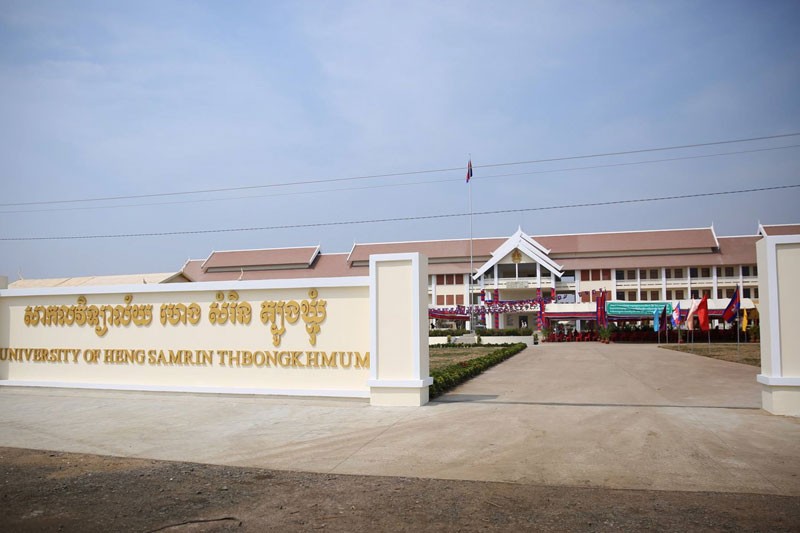Prime Minister Hun Sen said on Thursday that it was his government’s goal to build at least one public university in each of the country’s 24 provinces, although the premier did not specify a timeframe for the plan.
Speaking during the inauguration of the newly constructed University of Heng Samrin Thbong Khmum in Tbong Khmum province’s district of the same name, Mr. Hun Sen said the “one province, one university” plan was an extension of previous efforts to build one middle school in each of the country’s communes.

“This vision—which we have had planned in the CPP’s platform since the 2013 election—is aimed at building a university, or a branch, in each province,” the prime minister said, adding that seven provinces already had a public university.
“I am very confident that we can reduce the ‘brain gap’ through state investment,” Mr. Hun Sen said, before appearing to compare the policies of the opposition CNRP to those of the Khmer Rouge. “Our effort is to try to help our poor people to increase their income,” he said. “It’s impossible to dissolve the rich like Pol Pot’s policy, or like in the other political party’s platform.”
Mr. Hun Sen said in a post on his Facebook page on Thursday that the University of Heng Samrin Thbong Khmum would focus on agriculture and engineering, two fields that badly need more graduates.
He said the school had been made possible through funding from the Ministry of Education’s budget, and through “about $1 million” in donations collected by Interior Minister Sar Kheng.
Education Minister Hang Chuon Naron admitted that the ministry’s rural higher education options still lagged behind cities, but added that they still played a role in creating a more educated provincial populace.
“There are differences [in quality] because the good teachers don’t like to stay in the provinces. The good teachers like to stay in Phnom Penh and also the students like to come study in Phnom Penh,” Mr. Chuon Naron said.
“We want to change that, but we have to pay [lecturers] more,” he said, adding that the country had long-suffered from a divide between its rural areas and Phnom Penh.
“The rural-urban divide became an issue that the Khmer Rouge focused on,” he said.
“I think that’s why, even if the quality is different, [building universities] helps the rural area to develop and …reduces that urban-rural divide and the antagonism between the two areas, so that there is no longer reason for any radical revolution.”
Despite recent boosts to the Ministry of Education’s budget, Luise Ahrens, a consultant for the Royal University of Phnom Penh, said that for the “one province, one university” program to see success, spending on education would need to increase further.
“Funding for higher education in Cambodia is the lowest in the region as a % of GDP; if the goal is to open more HEIs [higher education institutions] in the provinces (or anywhere), this fact will have to change quickly and radically,” she said in an email.
“The Ministry of Economy and Finance will have to get on board to change the present financial provisions.”